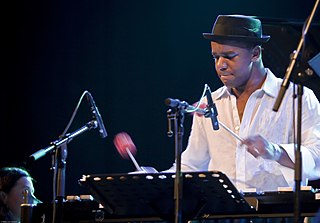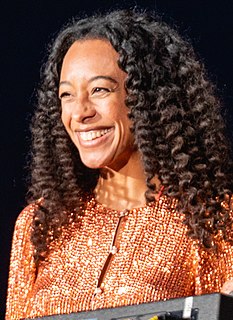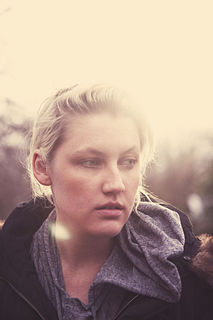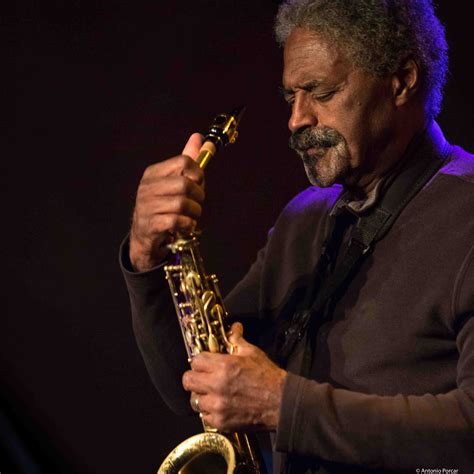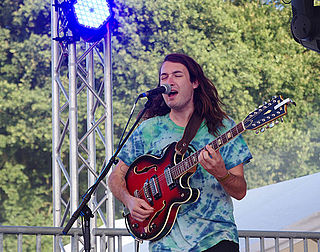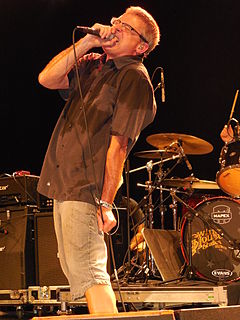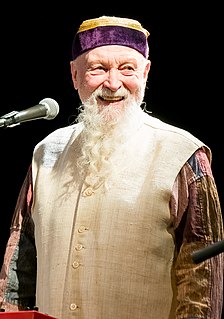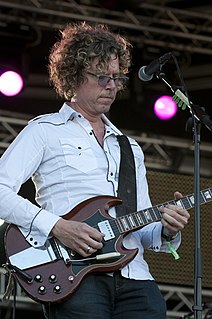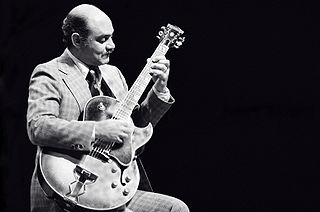A Quote by Danny Elfman
In some types of music I'm working out all the chords one bar at a time - the whole structure, because it's about that. And there are other pieces which are really about - okay, the melody is going to start here and play through to here.
Related Quotes
My course is about really working on a sheet of music. You work out the chords, which note complements the other, and how they will make the feeling of tension, the feeling of resolution. It's all about harmonization. That's more of the theory of notation and everything rather than practical. I don't play any instrument.
I think it all comes back to the individual. My instrument's just a pile of metal and wood! If you listen to the way I speak I have a lot of rhythm, use a lot of accents. When I'm playing my instrument that concept comes through very clearly. In fact some people who've seen me play have noticed that I'm singing - but it's more that I'm actually speaking. So it's not really about the instrument. But for me, in my thinking, the music is all about the melody. When I compose, 99 percent of the time I start with the melody.
My new single 'I'm Gonna show you crazy' is really about knowing it's okay to not be okay. It's not about being legit crazy it's about feeling like you're an outsider and there's nothing wrong with that. I was bitter during that time in my life but I needed that. It helped shaped me and my music. Going through a hard time makes you a better person. Going through hell those two years was worth it.
Instead of thinking in terms of chords, I think of voice-leading; that is, melody line and bass line, and where the bass line goes. If you do that, you'll have the right chord. [These voices] will give you some alternatives, and you can play those different alternatives to hear which one suits your ear. Keep the bass line moving so you don't stay in one spot: if you have an interesting bass line and you roll it against the melody, the chords are going to come out right.
Lately I haven't been able to write for the guitar - it'll usually start out with a melody on the bass, and I'll layer vocals. I just can't really physically hear the guitar anymore, so I'll just go into GarageBand and play around with the keys. I'll sit on a melody or some lyrics for a really long time and just play with it.
I met the pianist Barry Harris when I was about fifteen. He would show me changes, which I had no idea existed. I knew about scales, but I didn't think about chords. I was fortunate in that he lived right around the corner so I'd be at his house almost every day and he showed me about playing melodies over chords. After about three years, I could play some gigs. I worked with drummer Roy Brooks and other guys my age at that time, like trumpeter Lonnie Hillyer. Some of the older guys were Paul Chambers, Doug Watkins and Louis Hayes
The music comes first, like, 99 percent of the time. I come up with the basic chord structure and the melody first and then I get really obsessed with arranging, adding, and subtracting parts. The last step of the process, for me, is finding words that fit into that structure and figuring out exactly what I want to talk about.
I have a structured songwriting process. I start with the music and try to come up with musical ideas, then the melody, then the hook, and the lyrics come last. Some people start with the lyrics first because they know what they want to talk about and they just write a whole bunch of lyrical ideas, but for me the music tells me what to talk about.
When you have a lot of time, when you're not working a full-time job, you have a lot of time to question things and think about things. Some of it's about romantic relationships, some of it's about drugs, about religion, about this mass of humanity traveling through life doing all this crazy stuff, not really knowing why or for what.
You can't think and play. If you think about what you're playing the playing becomes stilted. You have to just focus on the music I feel, concenctrate on the music, focus on what you're playing and let the playing come out. Once you start thinking about doing this or doing that, it's not good. What you are doing is like a language. You have a whole collection of musical ideas and thoughts that you've accumulated through your musical history plus all the musical history of the whole world and it's all in your subconscious and you draw upon it when you play



